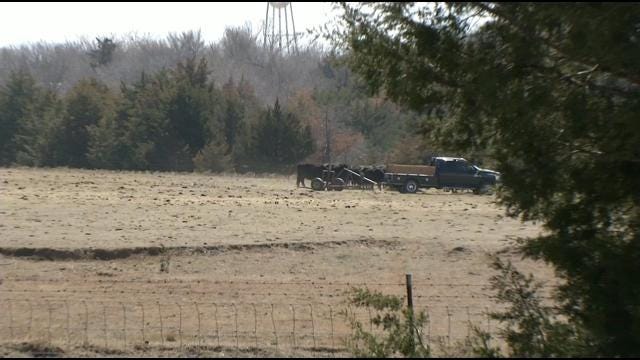Red Cedars Continue To Fuel Oklahoma Wildfires
The estimated 462 million red cedar trees in Oklahoma are a problem for firefighters and also have a huge economic impact on ranching.Friday, March 15th 2013, 5:17 pm
When wildfires burn hundreds of acres, there is a potential for more fires.
It's still extremely dry.
A there's another problem that is a major wildfire threat and it's costing Oklahoma agriculture millions of dollars each year.
Seems like everywhere you look in Oklahoma, you see Eastern red cedar trees.
When firefighters see them, they see a potential danger.
Wildfires this week and over the past few years have been fueled partly by the trees.
"We know there are there are probably more than a million acres with 50 percent of ground cover with red cedars," Oklahoma State University extension forestry specialist Craig McKinley said.
McKinley said red cedar trees have spread across Oklahoma's landscape rapidly.
They burn easily, quickly and can help wildfires get out of hand in a hurry.
"We caution everybody to get them away from their houses," McKinley said.
There are an estimated 462 million of the trees in Oklahoma.
They're a problem for firefighters and also have a huge economic impact on ranching.
"People who just want to raise cattle or horses or whatever on range land, that's where the encroachment seems to cause the most economic concern," McKinley said.
The trees can also zap 20 gallons of water each day from the already drought-plagued soil.
McKinley said one reason for their rapid spread is that seeds are scattered by birds, rather than just the wind.
"You look at some areas and it's totally infested where years ago it was rangeland," McKinley said.
About the only way to effectively control them is with a bulldozer, which is expensive, or with fire.
"Fire is a very cheap method of control, if it's done right," McKinley said. "Obviously, a fire mismanaged could be worse than wildfire."
While there is plenty of downside, McKinley said there is also an upside.
Red cedars could be harvested commercially for things like wood pellets or mulch, but transporting the heavy wood long distances is a challenge, and the trees are often in areas where it's hard to get in equipment.
A measure that would allow non-violent inmates to be trained to harvest red cedar trees has passed a state house committee and will now be considered by the state Senate.
More Like This
March 15th, 2013
September 29th, 2024
September 17th, 2024
Top Headlines
December 11th, 2024
December 11th, 2024
December 11th, 2024
December 11th, 2024












